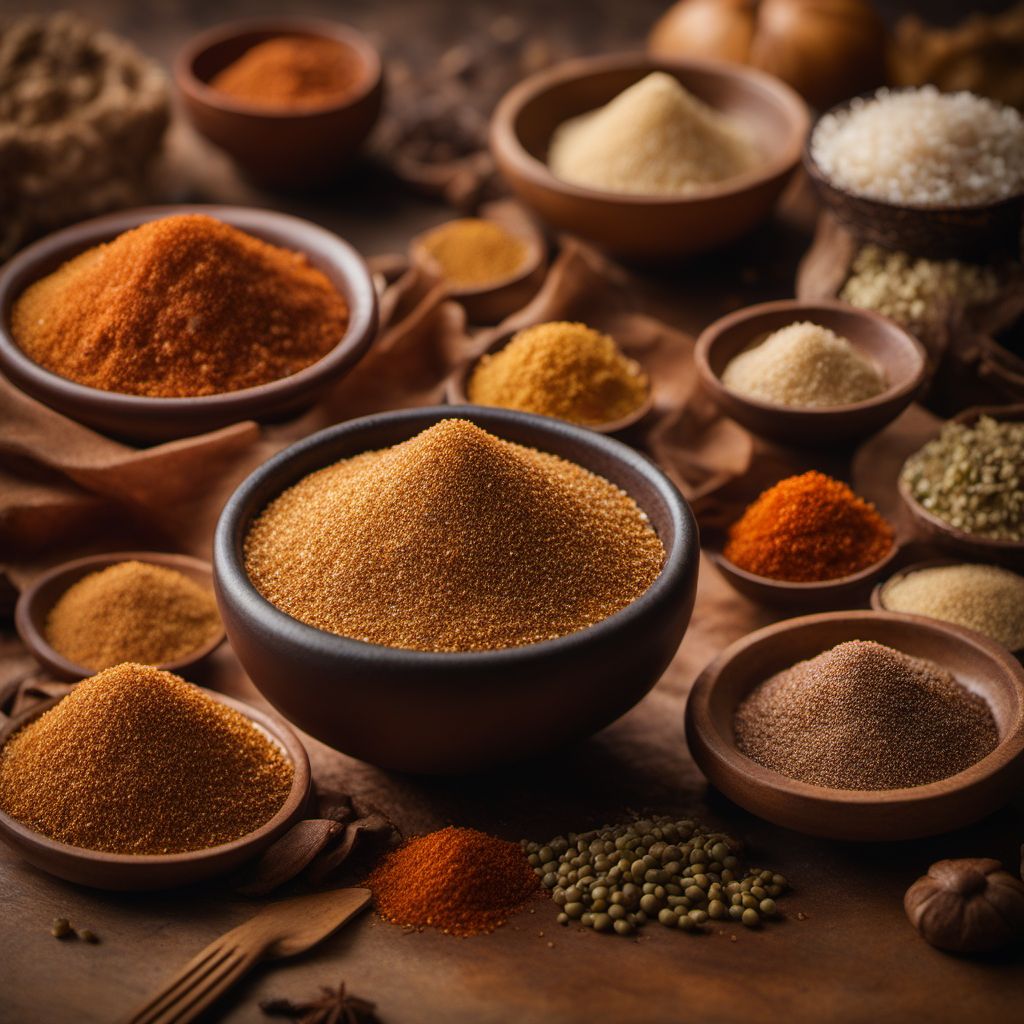
Ingredient
Seasoning mixes
The Art of Flavor Fusion
Seasoning mixes are carefully crafted blends of herbs, spices, and other ingredients that enhance the taste and aroma of dishes. They come in various forms, including dry powders, pastes, and liquid concentrates, each offering a unique flavor profile. Whether you're looking to add a smoky kick to grilled meats or a zesty tang to roasted vegetables, seasoning mixes are the go-to choice for home cooks and professional chefs alike. With endless possibilities, they allow you to experiment and create culinary masterpieces.
Origins and history
Seasoning mixes have a rich history that dates back centuries. Ancient civilizations, such as the Egyptians and Romans, used a variety of herbs and spices to enhance the taste of their food. Over time, different cultures developed their own signature blends, incorporating local ingredients and traditional techniques. Today, seasoning mixes have become an integral part of global cuisine, with each region boasting its own unique combinations. From the aromatic garam masala of India to the fiery jerk seasoning of the Caribbean, these mixes reflect the diverse culinary heritage of the world.
Nutritional information
Seasoning mixes are low in calories and fat, making them a healthy choice for flavor enhancement. They are primarily used in small quantities, so their impact on overall nutrition is minimal. However, they can contribute essential vitamins, minerals, and antioxidants depending on the ingredients used in the blend.
Allergens
Seasoning mixes may contain allergens such as gluten, soy, or nuts, depending on the specific blend and manufacturer. It is important to carefully read the ingredient list and allergen information on the packaging to ensure it is safe for consumption, especially for individuals with food allergies or intolerances.
How to select
When selecting seasoning mixes, look for reputable brands that use high-quality ingredients. Check the expiration date to ensure freshness and potency. Consider the specific flavor profile you desire and choose a mix that complements your intended dish. Additionally, opt for blends that are free from artificial additives, preservatives, and excessive sodium or sugar content.
Storage recommendations
To maintain the freshness and quality of seasoning mixes, store them in a cool, dry place away from direct sunlight. Airtight containers, such as glass jars or resealable bags, are ideal for preventing moisture and air exposure. Avoid storing them near heat sources or in humid environments, as this can lead to clumping and loss of flavor.
How to produce
Producing your own seasoning mixes can be a fun and rewarding culinary adventure. Start by experimenting with different combinations of herbs, spices, and other flavorings. Grind whole spices using a mortar and pestle or a spice grinder for maximum freshness. Store your homemade mixes in airtight containers away from direct sunlight to preserve their flavor and potency.
Preparation tips
Seasoning mixes can be used in a variety of dishes and cuisines. Sprinkle them on meats, poultry, or seafood before grilling, roasting, or sautéing to add depth and complexity. They can also be incorporated into marinades, dressings, soups, stews, and sauces for an extra flavor boost. Additionally, seasoning mixes can be used to season vegetables, grains, and legumes, transforming simple ingredients into vibrant and delicious creations.
Substitutions
Seasoning mixes are versatile and can be substituted with individual herbs and spices. However, the resulting flavor may differ slightly from the original blend. Experiment with different combinations to achieve a similar taste profile. Alternatively, you can create your own custom blend by adjusting the ratios of herbs and spices according to your preference.
Culinary uses
Seasoning mixes are widely used in various cuisines around the world. They are essential in Mexican, Indian, Middle Eastern, and Asian cooking, where they add depth and complexity to traditional dishes. From tacos and curries to kebabs and stir-fries, seasoning mixes are a staple in global culinary repertoire.
Availability
Seasoning mixes are commonly available in grocery stores, supermarkets, and specialty food stores worldwide. They can also be purchased online, offering a wide range of options and flavors to choose from.
More ingredients from this category

Indian spice mixes and similar (other than curry powder)
Aromatic Blends: Unveiling the Vibrant World of Indian Spice Mixes

Mixed herbs and spices
The Flavor Symphony: Mixed Herbs and Spices

Curry powder
The Magic Blend: Unveiling the Secrets of Curry Powder

Pickling spice
"The Flavorful Blend: Unveiling the Secrets of Pickling Spice"

Bouquet garni
The Fragrant Herb Bundle: Unlocking the Aromas of Bouquet Garni
Recipes using Seasoning mixes » Browse all

Homemade Nattō with Scallions and Soy Sauce
Umami Delight: Scallion-infused Homemade Nattō
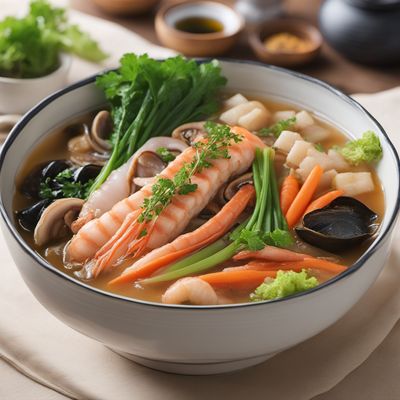
Japanese-style Seafood Hot Pot
Umami Delight: Japanese Seafood Hot Pot
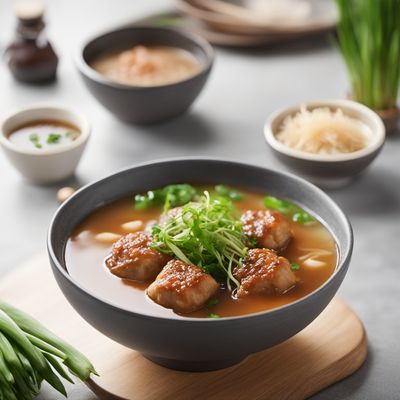
Nagoya-style Chicken Meatball Soup
Umami Delight: Nagoya-style Chicken Meatball Soup
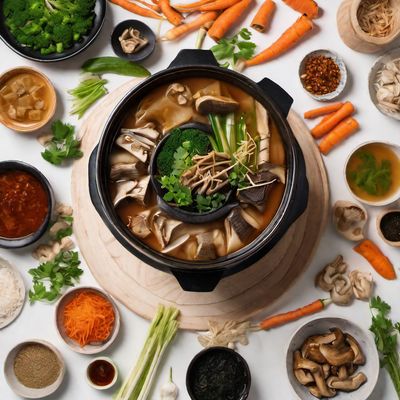
Vegan Hot Pot
Plant-Powered Hot Pot: A Vegan Twist on a Chinese Classic
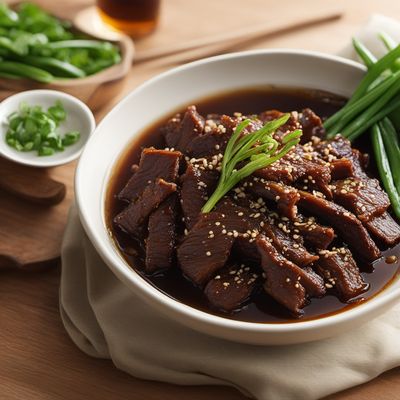
Korean Soy Braised Beef (Jangjorim)
Umami Delight: Korean Soy Braised Beef

Savory Soy Egg Delight
Umami Infused Soy Egg Delight

Japanese-style Pierogi
Sakura Dumplings: A Fusion of Polish and Japanese Flavors

Dango-jiru Recipe
Savory Dumpling Soup: A Taste of Japan

Kishimen - Japanese Flat Udon Noodles with Soy-based Sauce
Savory Delight: Master the Art of Kishimen - Traditional Japanese Flat Udon Noodles

Gindara Teriyaki with Sesame Glaze
Succulent Sesame Glazed Gindara: A Japanese Delight

Miso Nikomi Udon
Umami Delight: Hearty Miso Nikomi Udon
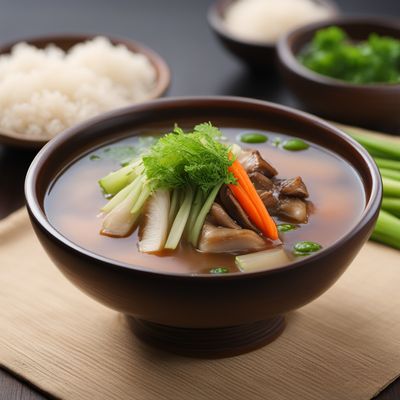
Imoni Soup
Hearty Autumn Stew: Imoni Soup